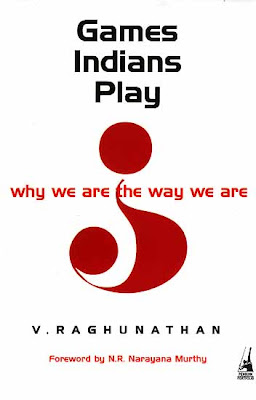Piracy = Opportunity
We all know how omnipresent piracy has become in India. For example, I came across the following advertisement (check out the picture below) board in Chennai for refilling inkjet cartridges and laserjet toners.

Even though refilling is not legally approved by printer manufactures, its an organized industry in India. Check out their website for more details and check out their interesting caption "Almighty gives only one life, but ASHCOM gives 6 lives", thereby saying that they can smartly refill the cartridge 6 times before getting rid of it forever. In a country where regulations doesn't exist or taken for granted, its impossible to expect people to buy cartridges/toners every time they run out of ink. The piracy is not restricted to cartridges alone. In Bangalore, everybody would have seen roadside bookshops having pirated copies of "best selling" books (recent addition: Go kiss the word by Bagchi) for 50-100 rupees.
And I don't need to talk about software. Almost all the people I have come across use pirated version of Windows Vista or XP, just after it gets released. No matter how much amount of Microsoft applies, Indians override it with even smarter ideas. Last week I was talking to one of my close acquaintances, who said his Windows XP was throwing up a warning message saying it is a pirated copy and asked him to install a original version. Many of his friends faced similar problems and they found a hack for fixing it.By pulling out a install file from original XP and placing it in a particular directory, the warning message can be put off. My close acquaintance sincerely got that file from one of his friends (note the point: when it comes to breaking the rules Indians help each other, not other way) and made XP as a 'original version'. Kudos to great Indian thinking!
For quite some time, I have been thinking of why we Indians are not giving due importance to original versions?. Is it because the way we are wired? Should the regulatory systems need to be blamed? Are we bad people? Not necessarily. The answer is simple -- we are not ready to pay for anything upfront if it is costing more than what an individual can afford. In a country with per capitia income is about 35,000 rupees, how can we expect anyone to pay 10% of it for purchasing original version of Windows XP or 1% for original version of a book? At the same time we cannot ask the educated knowledge workers to buy original version just because they have more disposable income. They constitute only 2% population, who also tend to go with the trend. Even if they buy original versions, it cannot be a viable business proportion for companies.
According to me, piracy is an opportunity. More piracy means people want a particular product desparetely. As they are not able to afford it, they take the piracy route. In order to address the problem we don't need better products but innovative business models. The focus should be given on how to make things easily affordable by taking the "micro-consumers --> micro-payments" model. For example, take Indian telecom service provides. They have pre-paid plans for as low as 30 rupees (micro-payment), which is working out very well for customers (micro-consumers). With the sheer scale in sales, service provides are getting their profits. In fact India is the fastest growing mobile market in the world. If the rate plans are in thousands, it would not have been successful.
A similar approach should be taken for other businesses (book publishing, selling software etc..) to make it sustainable. Piracy should be seen as an opportunity rather than a curse. I am sure there is a huge opportunity, yet to be tapped in many areas.

Comments